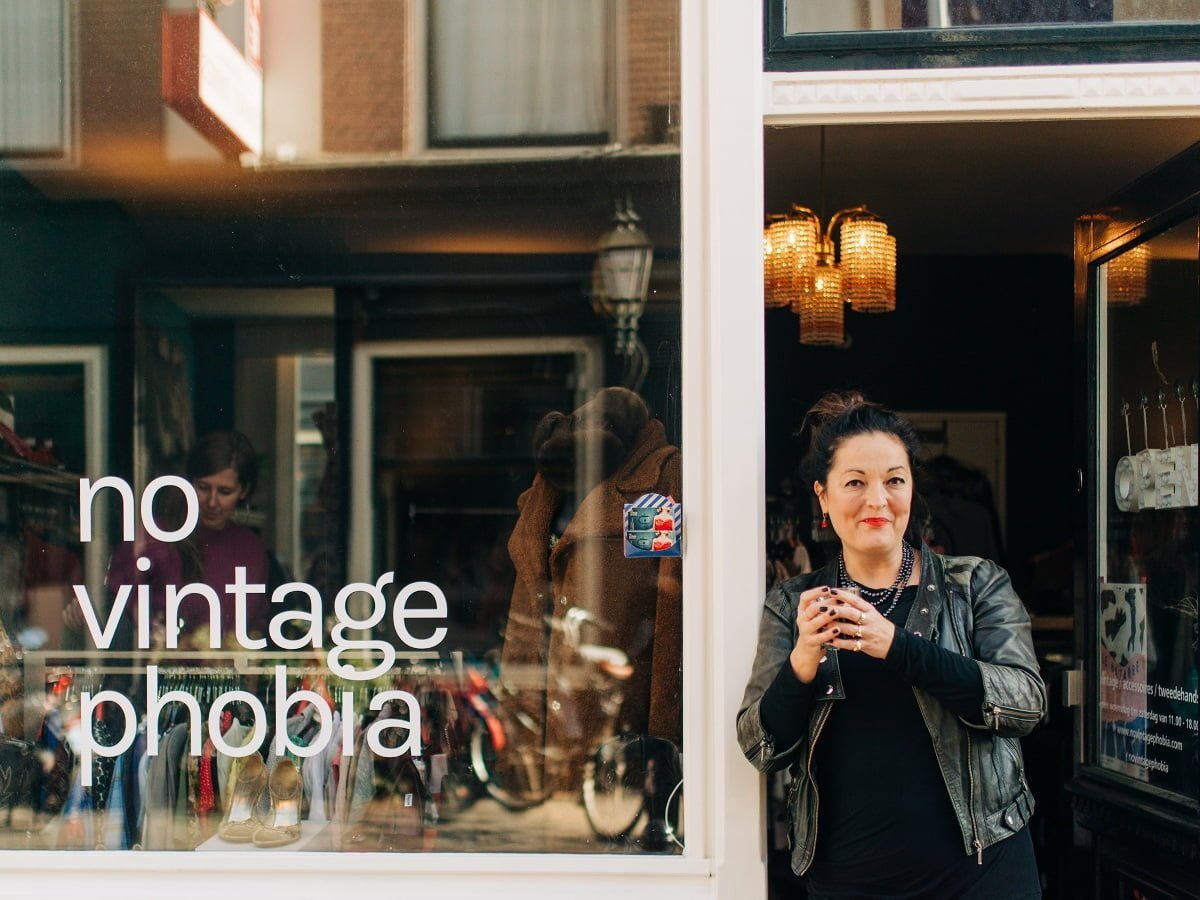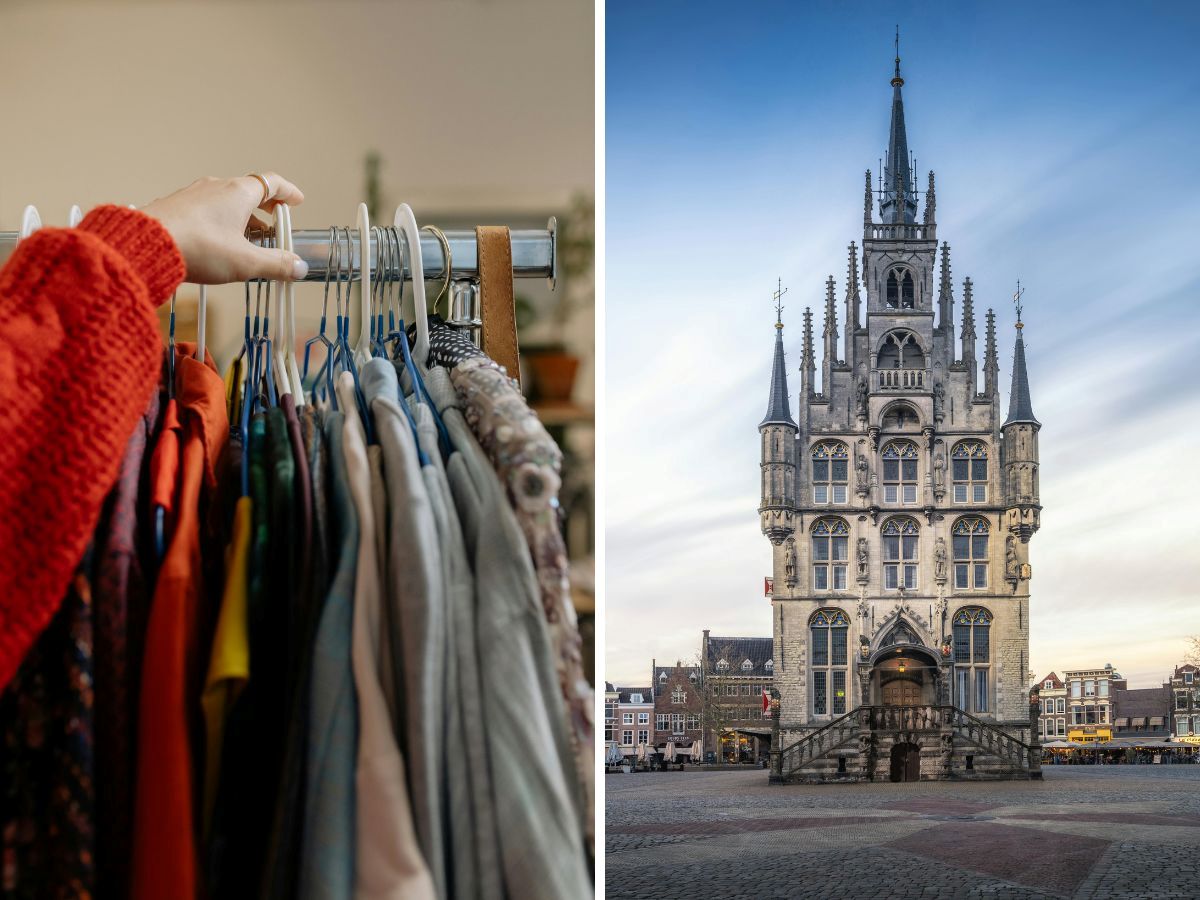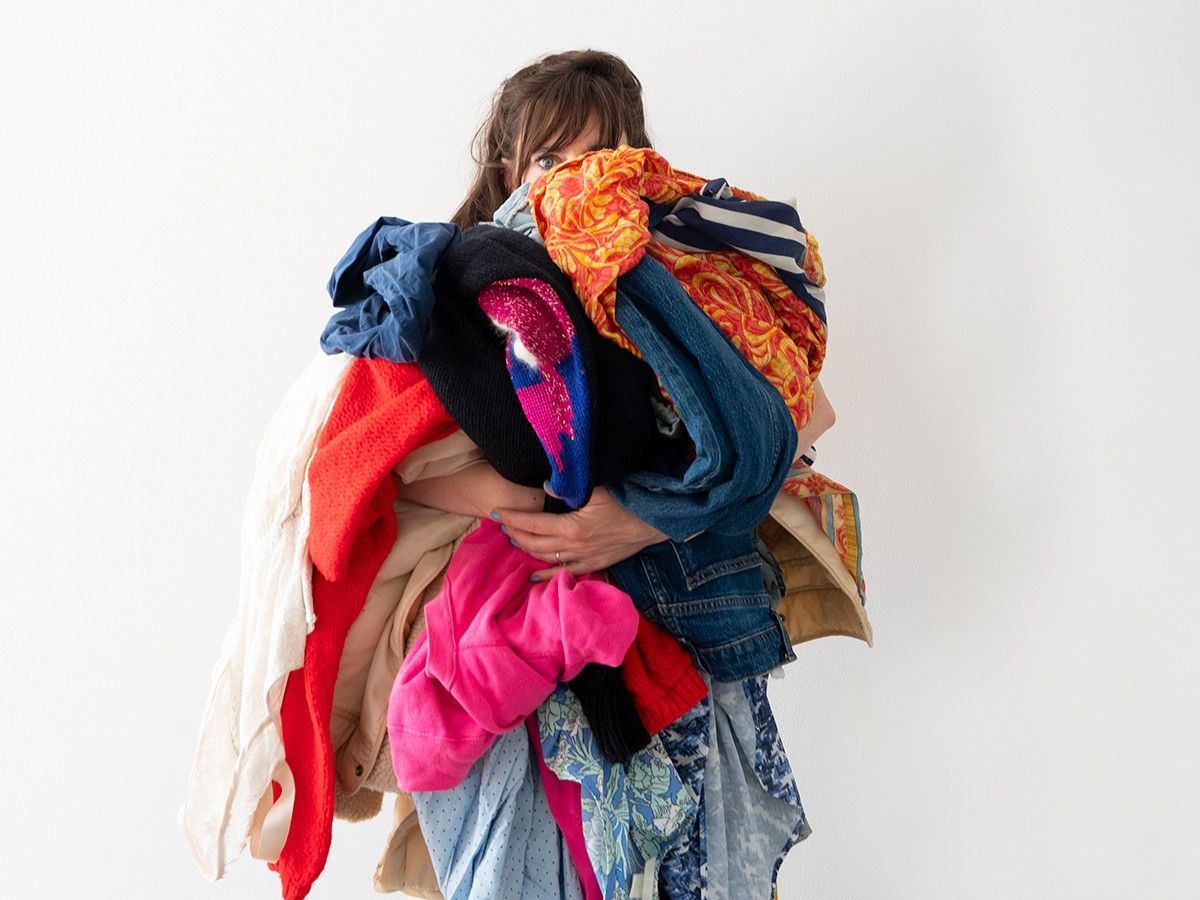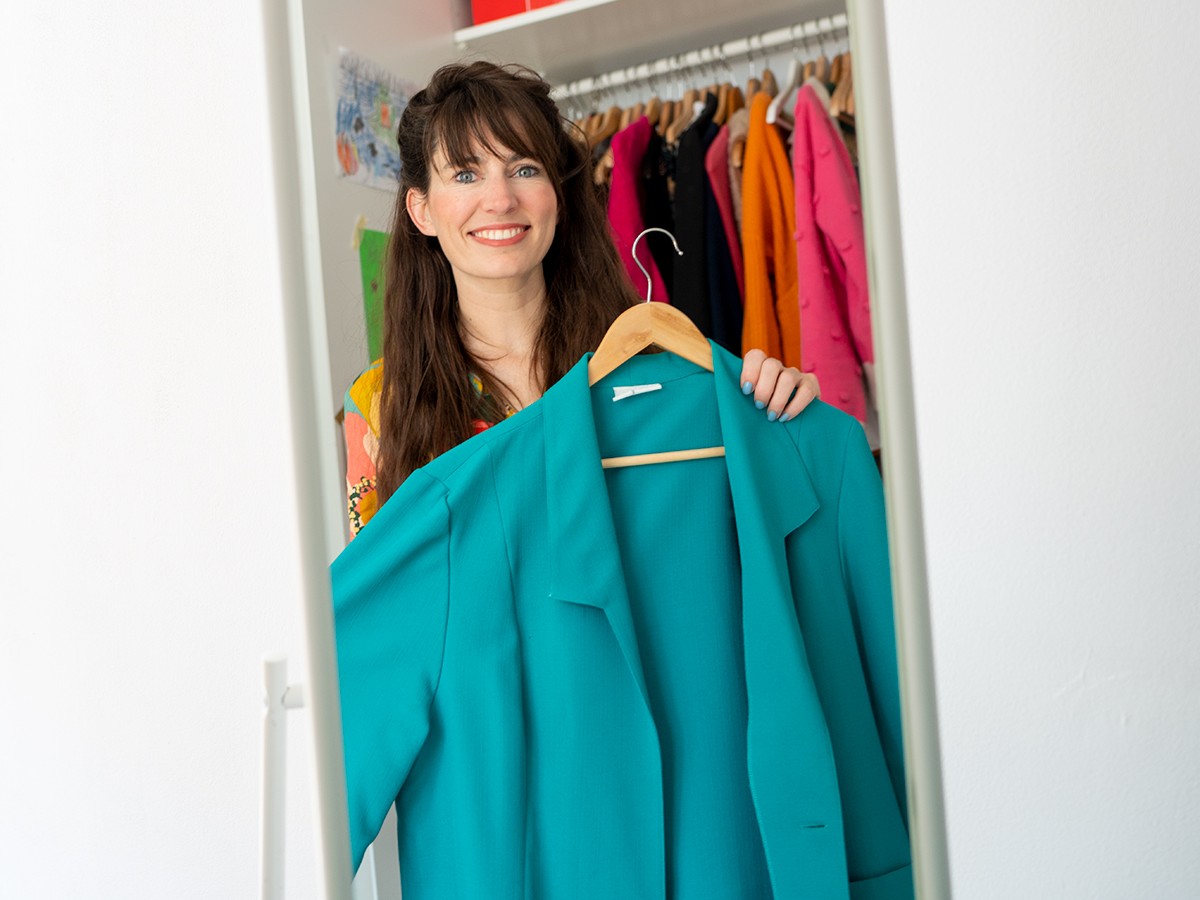Whether it is autumn, spring or a typically Dutch grey day, wool is always handy. Fine cardigans, thick jumpers and scarves - bring them on! But how sustainable is wool really? Although it is a natural material, it often involves animal suffering and its production causes a lot of methane emissions, which is a strong greenhouse gas that warms the earth. Is there a more eco-friendly and animal-friendly option? We looked into it for you and went in search of sustainable wool.
Is wool environmentally friendly?
When you think of wool, you probably think of sheep's wool. Understandably, so do we, but there are several types of wool - from different animals - so there are differences in terms of environmental friendliness and also the living conditions of the animals. So the best known and most widely used is sheep's wool, because it is relatively cheap. But there are also fancier varieties from other animals, such as cashmere from goats of Mongolia, angora from rabbits and alpacas that provide soft alpaca wool. We start with sheep's wool: how sustainable is it really?
Sheep wool, sustainable right?
OK, wool from a sheep is a natural, soft material that keeps you warm in winter and cool in summer. It doesn't wear out quickly, therefore lasts a long time and is dirt-resistant, so it doesn't need to be washed that often. A quick airing is enough. (Although really big stains don't disappear on their own, of course. Then you really should brush the stain carefully in places or do a wool wash).
But sheep's wool also has drawbacks that make it less environmentally friendly. Namely, each sheep can produce up to 30 litres of methane a day - yes, those are the infamous sheep farts that contribute to CO2 emissions. Furthermore, sheep need a lot of water and food. One advantage is that they usually graze on ‘poor’ land that is not suitable for agriculture, but their manure, especially in large quantities, can pollute soil and water. And countries where sheep numbers are high, such as Australia and Argentina, wool production often leads to deforestation. Forests are cut down to create more pasture for sheep, affecting biodiversity and soil quality. And finally, sheep wool is often treated with chemicals to clean or dye the wool - which is not exactly environmentally friendly either. So yes, that nice soft wool definitely has a hard side too.


Wool is a fine, natural material, but it is important to check that there is no animal suffering behind it.
Wool without animal suffering, please
Animal suffering is a third major ‘no’ when it comes to choosing wool. For instance, many sheep are treated with pesticides and insecticides against parasites. Next comes shearing the sheep, a labour-intensive job. In countries with huge herds, this job is often done as efficiently as possible. In other words: assembly line work, which can get rough, with little regard for the welfare of the sheep. Oh, and then there is myiasis, a disease caused by a fly. Just scroll a paragraph further if you have a weak stomach....
This fly, found mainly in Australia, lays eggs in warm, moist folds of skin, especially around the anus of sheep. These eggs become maggots, which settle in the sheep, which become very sick or even die from them. In order to outsmart the myiasis fly (which is mainly found in Australia, Argentina has a different climate and myiasis does not occur), mulesing was once invented: the skin around the tail and anus of the sheep is cut away, creating scar tissue, which makes the skin (and thus the whole sheep) less attractive to the myiasis fly. A violent procedure that is often done unanaesthetised and, yes, it is extremely painful for sheep.
OK, so there are quite a few points that might make you think ‘never mind that wool jumper then’. But you don't have to. Because there is also wool that is better. And there is also wool without animal suffering. Read along:
Organic wool better choice
If you choose organic wool, this wool comes from sheep that graze on pastures where no artificial fertilisers or other chemicals are used. No mulesing is applied, the sheep eat organically, are not given preventive antibiotics and their coats are not treated with chemicals or bleaches. Moreover, only vegetable oil is used to spin the wool into yarn. So do you want better organic wool? Then pay attention to the GOTS label, then you know the wool is organic and it also guarantees the wool is mulesing-free. Shopping tip: see the GOTS label? Then check the percentage of organic wool. Often this is 95% or 70%. This means that the remaining wool used may be non-organic but has been produced under strict environmental requirements.
One step further and you are at biodynamic wool (Demeter wool). Here, extra attention is also paid to the soil on which the sheep are kept, and the land and water are checked for pesticide residues. These sheep are sheared by hand once a year.
Looking for sustainable wool? Check out Alpaca wool!
Alpaca wool can also be a surprisingly eco-friendly choice. Alpacas naturally live and eat a lot more sustainably than sheep. They graze on the high plains of the Andes and require little water and food. Because their bodies work differently from sheep, they hardly produce any methane. Their soft paws also do not damage the soil, and because they bite off the grass instead of pulling it out by the roots, the land remains undamaged and the grass can grow again. All this makes wool from alpacas a more environmentally friendly choice.
The fleece of alpacas provides high-quality wool that is stronger, warmer and lighter than sheep's wool. Moreover, it is hypoallergenic, so ideal for babies and children. Alpacas come in 22 colours and their wool has as many as two hundred hues, so dyeing is often unnecessary - reducing the use of chemicals. Also, alpaca wool does not contain lanolin like sheep's wool, making processing easier and more environmentally friendly.
But beware: alpaca wool is not always animal-friendly. Although many alpacas graze in their natural habitat, there are unfortunately also reports of serious animal suffering, especially among fast fashion brands selling alpaca wool clothing. If you decide to go for an alpaca wool, buy it from a nice more sustainable fashion label. Earlier, we wrote an article on Bufandy's sustainable alpaca wool scarves.


Alpaca wool is a sustainable alternative to sheep's wool and because it has as many as two hundred shades of colour, dyeing is often unnecessary.
Natural: recycled wool is sustainable wool
Recycled wool is also an excellent sustainable choice. This material is made from post-consumer (used) wool items, which are sorted, cut and re-spun into new yarn. Often 10-15% new wool or another material is added to make the recycled wool stronger. Recycling wool saves a huge amount of water, energy and CO2 emissions. Want to know more about recycled clothing materials? Read more here: all recycled clothing materials at a glance.
Second-hand wool, also a sustainable choice
And last but not least: second-hand wool. The longevity of wool makes it a great choice to score a wool item second-hand. Whether it's at a thrift store or a vintage shop, chances are you can find a gorgeous second-hand wool item. Need tips for finding the best second-hand outfits? Then take a look here: Second-hand clothes: this is how to find the best outfits at the thrift shop.
Which sustainable fashion brands sell sustainable or recycled wool?
Are you looking for sustainable brands that work with recycled or organic wool? Here are a few brands that offer conscious choices for your wardrobe:
- The Amsterdam-based company Loop-a-life makes clothes from 100% recycled wool (as well as cotton).
- The Knitwit Stable sells clothes and yarns made of Dutch wool, sourced from sheep raised locally and animal-friendly.
- Other great brands making clothes with recycled wool are Armed Angels, Rifo and Dedicated.
- Dilling is a Danish company that has been making (underwear) clothing from organic, GOTS-certified wool for decades.
- Also fun: knit or crochet your own scarf or hat from recycled wool from Relove Wool. That's recycled wool, with 10-15% recycled polyester, in lots of colours. Via Studio Koekoek.
- On the site of Project Cece you will find many sustainable brands together and, apart from by brand or material, you can also search by GOTS label. Handy!
Need more inspiration? Find more sustainable wool brands in this article and in this article, we searched for you where to find real Dutch wool.
Sources: PETA, Ecotex, Androgora, GOTS, Behind the Seams. Photo credits: main image: Vlada Karpovich (Pexels), wool jumper with book: Nietjuh (Pexels), sheep: Jonathan Borba (Pexels), alpaca: Josiah Farrow (Pexels), wool fabrics: Pavel Danilyuk (Pexels).












